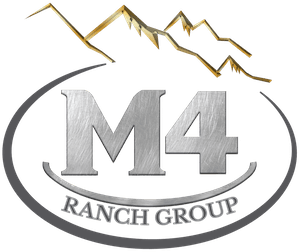Within the vast landscape of real estate investment, deeded acres are historically rooted and economically advantageous. It also stands out as a unique opportunity for those seeking to combine financial growth with tangible asset ownership.
This article delves into the intricacies of deeded acres, their differences, significance, advantages, and how they can be a cornerstone of a robust investment portfolio… here’s why:
‘not keen on reading – listen here instead’
What are Deeded Acres?
Deeded acres refer to the land or acreage that is legally owned by an individual or entity, which is documented through a deed. Unlike leased acres or acres with temporary rights, deeded acres provide the owner with the absolute title, thereby ensuring long-term security, added value, and the potential for various uses.
This is particularly prevalent in ranching and agricultural contexts, where large tracts of land are essential for operations. However, their application extends beyond agriculture to include residential, commercial, and recreational purposes.
In short: Deeded Acres establishes complete ownership within the property, while also ensuring control over its use.

How to Find Them
Deeded acres are seldom found on the deed unless they are included in the property’s legal description. The quickest way to look up deeded acres is through the subject property’s county assessor’s office.
However, the most accurate source would to be through conducting a survey.
The Differences
There are a multitude of terms that surround this, such as non-deeded, leased, and calculated… so what are the key differences between them:
- Deeded Acres vs Non-Deeded Acres
- Non-deeded acres, in contrast, are acres that an owner may have access to or use but does not legally own.
- These can include:
- Leased Lands
- Grazing Permits on Public Lands
- Or Access Agreements with Neighboring Properties
- These can still enhance the operational capacity of the land, but it does not contribute to the overall value in the same way as deeded acres.
- Deeded Acres vs Calculated Acres
- Calculated acres in contrast are estimates, derived from modern mapping technology!
- They can be useful for planning and valuation… but should be verified for accuracy, as they do not account for natural changes or easements.
- Whereas deeded acres hold legal significance and are crucial for tax assessments.
- Deeded Acres vs Leased Acres
- Leased acres in contrast are additional acres that a ranch owner has the right to use but does not own (unlike deeded acres). These are typically obtained through agreements with government agencies or other private landowners.
- Leased acres can also include a recreational lease for guiding hunters or for personal enjoyment.
- Understanding these key differences is essential for any buyer or seller when evaluating a property’s true value, operational potential, and long-term viability.
The Legalities
Understanding the legal framework of deeded acres and or land is crucial for any prospective investor. The deed outlines the:
- Property Boundaries
- Ownership Details
- Title Exceptions for the Property
- … and any Encumbrances or Easements that may affect the Land
The deed and the title exceptions for the property is therefore vital to ensure your land and acreage are free of disputes or claims from any third parties. Ultimately safeguarding your investment.

The Advantages
There are many advantages of investing in Deeded Acres, these include:
- Security
- Deeded Acres provide long-term security, as it is free from the uncertainties associated with leased land or government-controlled territories, It is also a finite resource with intrinsic value.
- Diversification
- Owning acreage and land is also a form of diversification, that can mitigate risks associated with more volatile investments. Moreover, it provides a hedge against inflation, as real estate generally appreciates over time.
- Tangibility
- In an investment landscape dominated by intangible assets such as stocks and bonds, deeded acres offer a tangible alternative.
- Income Stream
- A myriad of opportunities for income generation, from leasing land for agricultural purposes to developing recreational facilities… the revenue potential is vast.
- Legacy, and Generational wealth
- Investing in deeded acres provides a tangible asset that can be passed down through generations, creating a lasting family legacy and financial security for future descendants.

The Factors to Consider When Purchasing
When purchasing deeded acres, consider the following:
Location and Accessibility
The location of the acreage is perhaps the most critical factor in determining its value and potential. For example:
- Its proximity to urban centers
- Accessibility via major roadways
- Presence of natural resources
These all contribute to the desirability and usability of the land.
Soil Quality and Water Resources
The quality of the soil and the availability of water resources are paramount, fertile soil and an adequate water supply can significantly enhance the productivity and profitability of the land.
Zoning and Land Use Regulations
Understanding local zoning laws and land use regulations is essential when purchasing deeded acres. These regulations dictate what activities can be conducted on the land and may affect future development plans.
View our Colorado Ranches For Sale, New Mexico Ranches For Sale and Wyoming Ranches For Sale with Deeded Acres.
How to Maximize Your ROI
If you are looking to maximize your return on investment with deeded acres, consider the following:
Strategic Development and Improvement
Enhancing the value of deeded acres through strategic development and improvement can yield substantial returns. This could involve:
- Infrastructure Development
- Such as: building access roads, fences, and utility connections
- Enhancing the Land’s Natural Features
- To attract Tourism or Recreation
Leveraging Government Incentives
Many governments offer incentives for landowners who engage in conservation efforts or sustainable agricultural practices. These incentives can take the form of:
- Tax Breaks
- Grants
- Subsidies
These can significantly offset investment costs, it’s also worth noting that ‘Landowner Tags‘ are also deemed as a government incentive. Example: the EPlus (Elk Program) in New Mexico.
Partner with an Industry Expert
Engaging with a real estate broker, or conservation specialist can provide valuable insights and guidance. These experts can help identify the best use of the land, advise on market trends, and assist in navigating regulatory landscapes.

What Does The Future Look Like
As global populations rise and urbanization continues to encroach on rural landscapes, the value of deeded acres is poised to increase.
The combination of finite availability and growing demand makes land ownership an attractive proposition for long-term investors seeking stable, appreciating assets.
And at M4 Ranch Group we can help!
*Disclaimer: The material provided herein is general and is not intended to be legal advice. Nothing herein should be relied upon or used without consulting a lawyer to consider your specific circumstances, possible changes to applicable laws, rules and regulations and other legal issues
M4 Ranch Group
At M4 Ranch Group, finding you the perfect piece of land with deeded acres is a top priority, alongside securing you a legacy, diversifying an investment portfolio, and tapping into a resource that offers both financial and intrinsic value.
Whether that is Deacon Gulch Ranch at 406 acres or Grand Mesa Ranch at 4,338 acres, let M4 help you build your legacy.
Our dedicated brokers are ready to assist you in realizing your dream
A Sample of Ranches For Sale with Deeded Acres

Thundering Hooves Ranch
$21,900,000
Thundering Hooves Ranch is a remarkable property spanning 5,709.3± deeded acres. With an extensive water supply, diverse wildlife, and direct access to public lands, this property offers a rare opportunity for hunters and ranchers alike.

Red Mountain Ranch
$18,495,000
Red Mountain Ranch features two 7±-acre lakes, over 3 miles of improved trout streams, and Red Mountain Creek, which flows through the entire length of the property. This Colorado Ranch For Sale, also includes an Engelmann Spruce log cabin, a second log cabin for guests, and a barn with a caretaker’s apartment located above.

Ragged Spur Ranch
$15,900,000
Ragged Spur Ranch encompasses 3,760± acres in Gunnison County with irrigated ground, historic water rights, and premier hunting in GMU 521. With creek frontage, public land borders, and year-round access, it’s a rare Western Slope ranch offering both recreation and productivity.


